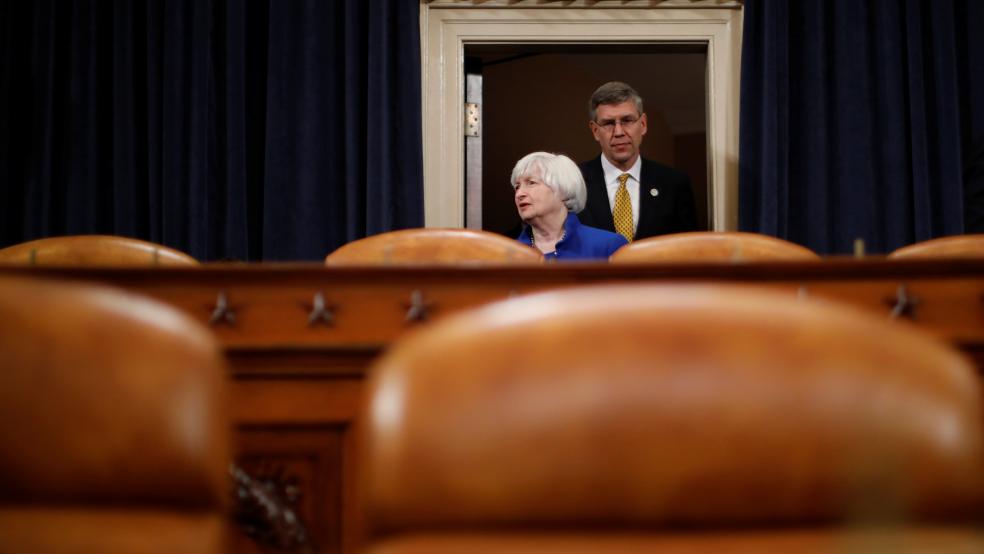If Federal Reserve Board chair Janet Yellen has been wondering whether she would be comfortable serving alongside members of a Donald Trump administration, she can stop now. The presumptive Republican presidential nominee said Thursday that if he is in the Oval Office when Yellen’s term is up in 2018, she’ll be out of a job.
Trump’s comments came in an interview with the financial news station CNBC, in which he explained that his decision to get rid of the first woman chair of the central bank has nothing to do with her performance and everything to do with her party identification.
Related: Trump Wants to Add to the War on Terror’s $4 Trillion Price Tag
“I have nothing against Janet Yellen whatsoever, she’s very capable person. But she’s not a Republican,” he said. “When her time is up I would most likely replace because of the fact it would be appropriate.”
He went on to note that he supports Yellen’s dovish approach to interest rates, which she has helped persuade the Federal Open Market Committee to keep near historic lows, even after some more conservative economists began insisting that the danger of sparking runaway inflation has increased.
“She is a low interest rate person, she’s always been a low-interest-rate person, and let’s be honest, I’m a low-interest-rate person,” Trump said.
It was not the first time that Trump has said he would not reappoint Yellen to another four-year term at the head of the central bank. He made similar comments last month, while simultaneously saying that he generally agrees with her policies and approach.
Related: 5 Worlds Rocked by Donald Trump’s Primary Victory
Were Trump to replace her, Yellen would be the first Fed chair since the Hoover administration to complete a full term in office and not be offered a second term.
In addition to his promise to replace Yellen, Trump also told CNBC that he is not in favor of “strong dollar” policies that keep the value of the U.S. dollar high compared to other countries’ currencies.
“If we raise interest rates and if the dollar starts getting too strong, we’ll have some very major problems,” he said. “I love the concept of a strong dollar, but when you look at the havoc that a strong dollar causes ... it sounds better to have a strong dollar than it actually is.”
He said that he is also in favor of refinancing the federal debt at the low, long-term interest rates currently available to the Treasury Department.





